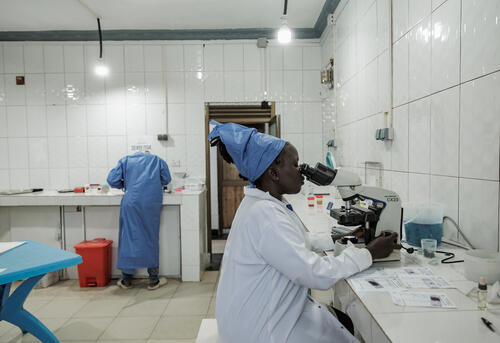Reviewing the ethical acceptability of MSF research
Historically, research was not seen as core to the mission of Médecins Sans Frontières. However, MSF now initiates, sponsors or participates in numerous research projects in multiple field sites. Results from several research projects have had substantial impact on global health policy and provided benefits to populations served by MSF and elsewhere. As a result, research has become increasingly integral to MSF activities, both in the field and in global health advocacy.
MSF has paid particular attention to the ethical issues arising from the research in which they engage, manifested by the creation of an independent ethics review board (ERB) in 2002 that evaluates all research proposals involving MSF.
Why is there a need for ethical review of research?
The World Health OrganizationWHO. Standards and operational guidance for ethics review of health-related research with human participants. http://www.who.int/ethics/publications/9789241502948/en/ defines research with human subjects as any social science, biomedical, behavioural, or epidemiological activity that entails systematic collection or analysis of data with the intent to generate new knowledge, in which human beings:
- are exposed to manipulation, intervention, observation, or other interaction with investigators either directly or through alteration of their environment; or
- become individually identifiable through investigator's collection, preparation, or use of biological material or medical or other records.
Ethical reviews are conducted to protect the dignity, rights, well-being and welfare of research participants and communities. The MSF-ERB thus examines research protocols thoroughly to make sure that the research is scientifically sound, pertinent, relevant and beneficial for the community and/or the intended participants; that the methods by which the research will be conducted are rigorous; and that the participants’ rights are respected and protected.
MSF-ERB: Beyond ethical review of research
The MSF-ERB ensures that researchers adhere to universal humanitarian imperatives of alleviating human suffering, preserving human dignity as well as protecting and respecting human rights regardless of race, creed, nationality or political belief – unique ethical challenges, which may not be captured by typical research ethics guidelines. Furthermore, the Board engages with and provides advise to MSF regarding ethical issues.
The MSF-ERB board
The MSF-ERB is composed of a diverse group of professionals coming from different continents, with an understanding of humanitarian and NGO realities. The members of the board do not have a working relationship with MSF to avoid conflict of interest and ensure independence. The passion and high level of expertise of the Board pushes the organisation and, by its example, the field of research ethics itself to better and higher standards as well as to keep on questioning existing standards, in view of new field challenges.



